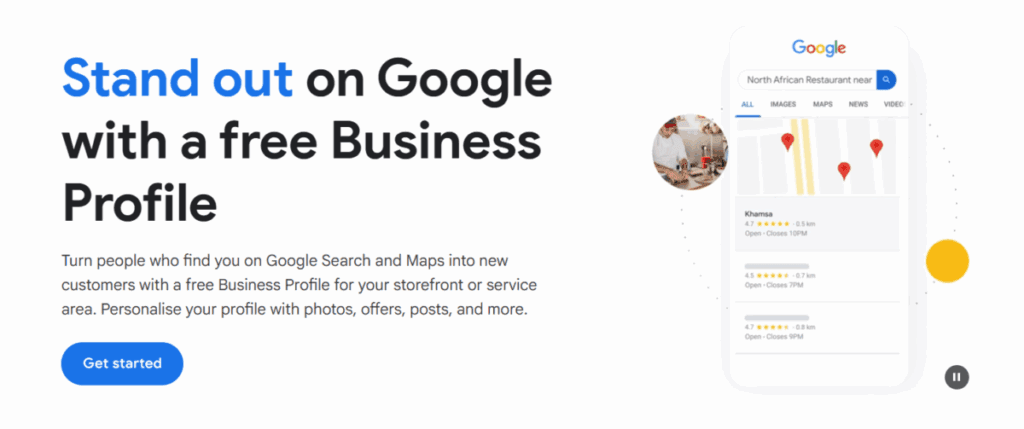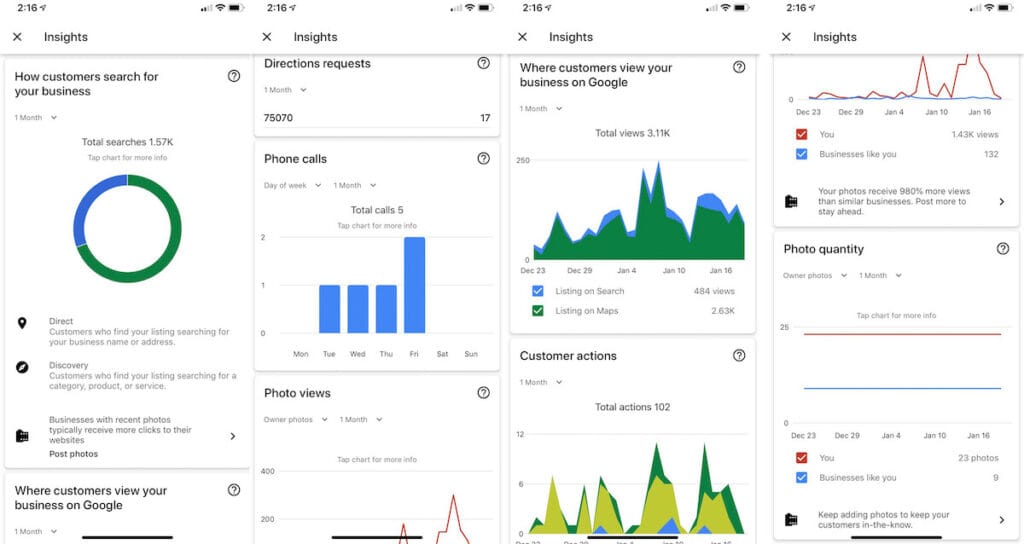In Liverpool and across the wider Merseyside region, the marketplace is bustling and highly competitive. For small to medium-sized businesses and marketing managers, grabbing the attention of local customers is more important than ever.
With more people turning to online searches to find nearby products and services, simply being online isn’t enough anymore—you need to be easily discoverable by the very people searching for what you offer in your local area. This in-depth guide is here to give you clear insights and practical strategies to boost your local search presence and draw in more customers from your community.
Introduction – Why Local SEO is Non-Negotiable for Liverpool & Merseyside Success
Tough Competition
Liverpool and its surrounding areas, including Wirral, Sefton, Knowsley, and St Helens, boast a dynamic and diverse business landscape. From independent boutiques in the Baltic Triangle to established legal firms in the city centre, the competition for local customers is fierce. In this bustling environment, businesses must adapt to how modern consumers find services and products: through online search.
What is Local SEO (in Simple Terms)?
Local SEO, or local Search Engine Optimisation, is a specialised form of SEO that focuses on improving your online visibility to attract customers from relevant local searches. Unlike general SEO, which aims for broad national or global rankings, local SEO zeroes in on geographic relevance. It’s about ensuring your business appears when someone in Anfield searches for “plumber near me” or a tourist in the city centre looks for “best cafes Liverpool.
The Stakes: What You Gain (and Lose Without It)
Implementing a strong local SEO strategy offers significant advantages for your Liverpool or Merseyside business:
- Increased Visibility: Your business becomes more prominent in local search results, including Google Maps, the Local Pack, and organic listings.
- More Local Leads and Traffic: Local SEO directly translates to more foot traffic for physical stores, and increased local leads, calls, and website visits.
- Building Trust and Authority: Appearing at the top of local search results signals trustworthiness to potential customers, influencing their purchasing decisions.Positive reviews, in particular, can significantly impact a business’s credibility.
- Competitive Advantage: Effective local SEO allows you to stay ahead of local competitors who may not be fully leveraging these strategies.
46% of all Google searches have local intent.
Consider these compelling statistics: 46% of all Google searches have local intent. Moreover, 97% of consumers searched online to find a local business, with 12% doing so daily. A significant 76% of people who search for something nearby on their smartphone visit a local business within 24 hours, and 28% of local searches result in a purchase.
What This Guide Will Cover
This guide will walk you through the essential pillars of local SEO, providing practical steps and insights tailored for businesses operating in the Liverpool and Merseyside regions. We’ll cover everything from optimizing your Google Business Profile to building local citations and earning valuable reviews.
Section 2: Laying the Foundation – Your Google Business Profile (GBP) is King in Liverpool
Why Your Google Business Profile is Your #1 Local SEO Tool
Your Google Business Profile (formerly Google My Business) is arguably the most crucial tool for local SEO. Its prominence in search results, especially in the Local Pack and Google Maps, directly impacts how customers engage with your business. Businesses with complete Google Business Profiles are considered 2.7 times more reputable by customers.
Claiming or Creating Your Liverpool GBP Listing

If you haven’t already, the first step is to claim or create your GBP listing. Google provides a straightforward process, often involving verification via postcard, phone, or email to confirm your business’s physical location.
C. Optimising Every Inch of Your GBP
A well-optimised GBP listing is critical for local ranking. Here’s how to make yours stand out:
- Ensure your Business Name, Address, and Phone Number (NAP) are identical across every online platform. Inconsistent NAP information can confuse search engines and users. For Liverpool and Merseyside businesses, use the correct postcodes and address formats (e.g., L1, L2, WA10, CH41).
- Choosing the Right Categories: Select the most accurate primary and secondary categories that reflect your core services in Liverpool. This helps Google understand what your business does.
- Services/Products: Detail all the services and products you offer. Be as specific as possible.
- Business Description: Craft a keyword-rich and compelling business description. Naturally include your service areas within Merseyside.
- High-Quality Photos & Videos: Showcase your business’s appeal. Include professional photos of your storefront (if applicable), interior, team, and products. Think about what makes your business uniquely “Liverpool” and highlight that.
- Google Posts: Regularly use Google Posts to share offers, news, events, or updates relevant to your Liverpool audience. This keeps your profile active and engaging.
- Q&A Section: Proactively add frequently asked questions and their answers. Monitor and respond promptly to any questions users post.
- Attributes: Fill out all relevant attributes, such as opening hours, accessibility features, and payment methods. Include any specific Liverpool-relevant attributes (e.g., “Outdoor Seating in the Baltic Triangle” for a café).
D. Encouraging & Managing Reviews on GBP (More on this later, but crucial for GBP)
Reviews are a powerful tool for local SEO and building social proof. Customers are 70% more likely to visit a business with a complete GBP profile, and 42% of consumers regularly check online reviews when browsing for local businesses. We will delve deeper into review management later, but remember their direct impact on your GBP ranking and overall trustworthiness.[1]

Section 3: On-Page SEO – Optimising Your Website for Liverpool & Merseyside Searches
Your website is a core asset in your local SEO strategy. Optimising it for local searches helps search engines understand your geographic relevance.
A. Local Keyword Research: Understanding What Scousers Search For
Effective local SEO begins with understanding what local customers are searching for.
- Identifying Local Intent: Look for keywords that include geographic modifiers, such as “best solicitors Liverpool city centre,” “emergency plumber Wirral,” or “Sefton Park cafes.”
- Tools for Research: Utilise tools like Google Keyword Planner (free), Ahrefs, and SEMrush (paid) to identify relevant local keywords. Even free alternatives can provide valuable insights.
- Long-Tail Local Keywords: Don’t overlook longer, more specific phrases that often have less competition and higher conversion rates (e.g., “independent bookshop Lark Lane Liverpool”).
B. Optimising Key On-Page Elements
Once you have your keywords, integrate them naturally into your website’s content and technical elements:
- Title Tags & Meta Descriptions: These are the first elements users see in search results. Include your target keywords and location (e.g., “Expert Web Design Services in Liverpool | YourBrand”).
- Header Tags (H1, H2, etc.): Use keywords and location naturally within your headings to structure your content and signal its relevance to search engines.
- Website Content:
- Homepage: Clearly state who you are, what you do, and the specific areas you serve within Liverpool and Merseyside.
- Service Pages: Create dedicated pages for each of your core services, optimising them with local keywords (e.g., “Residential Conveyancing in South Liverpool”).
- Location Pages (if applicable): If you serve multiple distinct towns or neighbourhoods within Merseyside (e.g., Bootle, Crosby, Southport), consider creating dedicated pages for each, detailing your services and local relevance.
- Blog Content: Develop blog posts around local topics, news, case studies, or guides relevant to your Liverpool/Merseyside audience (e.g., “Top 5 Challenges for Small Businesses in Merseyside & How Digital Marketing Helps”). This also helps build authority and provides fresh content.
C. NAP & Map Integration on Your Website
- Consistent NAP: Ensure your business’s Name, Address, and Phone Number are consistently displayed in your website footer and/or contact page, mirroring your GBP listing.
- Embedded Google Map: Embed a Google Map of your physical location(s) on your contact page. This provides visual confirmation and convenience for users.
D. Local Business Schema Markup
Schema markup is a type of code you add to your website that helps search engines better understand your business’s local information.
- Brief Explanation: It tells search engines, in their language, specific details about your business, such as its name, address, phone number, opening hours, and accepted payment methods.
- Key Types: Focus on LocalBusiness, Organisation, Address, and OpeningHours schema types.
- Tools: Tools like Merkle’s Schema Markup Generator can help you create the necessary code without extensive programming knowledge.
Section 4: Building Local Citations – Getting Your Liverpool Business Listed
A. What are Local Citations?
Local citations are online mentions of your business’s Name, Address, and Phone Number (NAP) on websites other than your own. These can include business directories, review sites, and social media platforms.
B. Why Consistency is Key (Reiterate NAP)
As with your GBP, NAP consistency across all citations is crucial. Conflicting information can confuse search engines and negatively impact your local rankings.
C. Top Citation Sources for Liverpool & Merseyside Businesses
To build a robust citation profile, focus on a mix of major and local directories:
- Major Data Aggregators: These are services that collect business information and distribute it to a wide network of directories and platforms. While specific “main ones” feeding UK directories can change, focusing on broad, reputable UK directories is generally effective.
- Core UK Directories:
- Yell.com
- Thomson Local
- Yelp
- Foursquare
- Scoot
- Industry-Specific Directories: Search for directories relevant to your specific niche (e.g., “Liverpool plumbers directory,” “Merseyside accountants list”).
- Local Liverpool/Merseyside Directories & Websites:
- Liverpool Chamber of Commerce: If you are a member or your industry has a local chamber, this is an excellent source.
- Local Council Business Directories: Check the websites of Liverpool City Council, Wirral Council, Sefton Council, etc., for business listing opportunities.
- Local News Sites: Reputable local news outlets like the Liverpool Echo might have business directories or opportunities for listings.
- Community Websites or Forums: Explore local community sites (e.g., thebestof Liverpool, The Guide Liverpool, Liverpool Business Directory)
- Local Business Associations: Consider associations like Professional Liverpool, Knowsley Chamber of Commerce, Liverpool Law Society, or the Merseyside Black Business Association.
D. Tools & Strategies for Managing Citations
- Manual Submission: You can manually submit your business to directories. This ensures accuracy and gives you control.
- Citation Services: Services like BrightLocal, Moz Local, or Yext can automate the citation-building and management process. While convenient, they come with a cost, and it’s essential to understand their pros and cons before committing.
- Auditing Existing Citations: Regularly audit your existing citations to identify and correct any inconsistencies or outdated information.
Section 5: The Power of Reviews – Building Trust with Your Merseyside Customers
A. Why Online Reviews are Crucial for Local SEO & Conversions
Online reviews are a cornerstone of local SEO and customer trust:
- Social Proof and Trust Signals: They provide genuine feedback from other customers, acting as powerful social proof. Over 88% of consumers trust online reviews as much as personal recommendations.
- Direct Ranking Factor: Google heavily weights the quantity, quality, and recency of reviews in its local ranking algorithm.
- Influence Purchasing Decisions: A significant 75% of clients feel more positive about using a local business after reading a positive review. Many consumers expect a business to have a minimum of four stars before considering it.
B. Encouraging Reviews (Ethically!)
- Ask Directly: The most effective way to get reviews is to politely ask satisfied customers, either in person or via email follow-up.
- Provide Direct Links: Make it easy for customers by providing direct links to your Google Business Profile review section, Yelp, or industry-specific review sites.
- Leverage Local Culture: Liverpool and Merseyside are known for their strong community spirit. People are often happy to support and recommend local businesses they’ve had a positive experience with.
- What NOT to Do: Avoid buying reviews or offering discounts specifically for a review, as this violates most platforms’ terms of service and can lead to penalties. Focus on genuine feedback.
C. Responding to ALL Reviews (Good and Bad)
Your engagement with reviews is as important as the reviews themselves.
- Thank Positive Reviewers: A simple “thank you” shows appreciation and reinforces positive sentiment.
- Address Negative Reviews Professionally: Okay, here’s the super-short, still-slightly-funny version for handling those not-so-glowing reviews:
Negative review got you down? Don’t go full keyboard warrior.
Acknowledge: “Oof, sounds like we dropped the ball (and maybe juggled it poorly).”
Solve: “Let’s make it right. How about [quick fix idea]?”
Go Private: “DM us so we can chat without an audience.”
Why bother? Because 86% of folks will forgive a fumble if you handle it with a bit of grace (and maybe a chuckle). Turns out, good customer service is like a comedy show – even the hecklers can be won over.
D. Showcasing Reviews on Your Website
Consider adding a testimonial page or embedding review widgets on your website to proudly display positive feedback. This builds trust with website visitors and reinforces your local credibility.
Section 6: Local Link Building – Earning Authority in the Liverpool Community
A. What is Local Link Building?
Local link building involves acquiring backlinks (links from other websites to yours) from reputable and geographically relevant websites. These links signal to search engines that your business is a trusted authority within the Liverpool/Merseyside community.
B. Strategies for Acquiring Local Links
- Sponsorships: Sponsor local Liverpool events, sports teams, or charities. Often, your business will receive a link from their website in return.
- Local Partnerships: Collaborate with complementary, non-competing local businesses. For example, a bakery might partner with a local café. This can lead to reciprocal links or mentions.
- Guest Blogging on Local Sites: Offer to write valuable content for other Liverpool or Merseyside-based blogs, news outlets (e.g., local sections of the Liverpool Echo), or community websites.
- Local PR: Seek opportunities to get featured in local news stories, interviews, or radio segments. Media coverage often comes with valuable backlinks.
- Hosting Local Events/Workshops: Organise or host community events or workshops. Promote these events and often get links from event listings or local news coverage.
- Joining Local Business Associations: Many local business associations and chambers of commerce (like the Liverpool Chamber of Commerce) offer directory listings with backlinks for their members.
Section 7: Technical SEO Considerations for Local Businesses
While a deep dive into technical SEO is beyond this guide’s scope, some key considerations are particularly important for local businesses.
A. Mobile-Friendliness is a Must
A vast majority of local searches occur on mobile devices, especially “near me” searches. Google also prioritises mobile-first indexing, meaning your website’s mobile version is the primary one used for ranking. Ensure your website is responsive and provides an excellent experience on smartphones and tablets.
B. Website Load Speed
Users, particularly on mobile, expect fast-loading websites. Slow page speeds can negatively impact user experience and your search rankings. Optimize images, leverage browser caching, and consider a reliable hosting provider to improve your site’s speed.
C. Website Structure & Internal Linking
A logical website structure with clear navigation is crucial. It acts like a roadmap, helping both your users and search engines easily find and understand your content.
Effectively use internal links to connect related pages within your site. This strategy not only guides users to relevant information but also distributes “link equity” (authority) between your pages, which can boost their search engine ranking.
For instance, a general “Services” page should link directly to more specific service pages, such as “Residential Conveyancing in South Liverpool” or “Commercial Property Services in Wirral.” This makes it simple for users to navigate to the exact information they need and signals the importance and relevance of these specific pages to search engines.
Section 8: Measuring Your Liverpool Local SEO Success
Tracking your progress is essential to refine your local SEO strategy.

A. Key Performance Indicators (KPIs) to Track
- Google Business Profile Insights: This free tool provides invaluable data on how customers find and interact with your GBP listing. Track metrics like:
- Views: How many times has your profile appeared in search or maps?
- Searches: Differentiate between direct (people searching for your business name), discovery (people searching for a category or service you offer), and branded searches.
- Actions: Website visits, direction requests, and phone calls initiated directly from your GBP.
- Google Analytics: Monitor organic traffic to your website, especially filtering by geographic location to see users from Liverpool and Merseyside. Track goal completions (e.g., form submissions, phone clicks) from local users.
- Google Search Console: Analyse search queries that bring users to your site, impressions, clicks, and your average position for targeted local keywords.
- Rank Tracking: Use rank tracking tools to monitor your business’s position for specific local keywords (e.g., “solicitors Liverpool,” “cafe near Sefton Park”).
- Phone Calls & Form Submissions: Keep a clear record of leads generated directly from local search efforts.
B. Tools for Tracking
- Google Analytics, Google Search Console, and GBP Insights: All are free and essential tools provided by Google.
- Paid Rank Trackers: Tools like Ahrefs, SEMrush, or more local-focused SEO tools can provide detailed insights into your local keyword rankings and competitor performance.
Section 9: Common Local SEO Mistakes Liverpool Businesses Make (And How to Avoid Them)
Even with the best intentions, businesses can stumble. Here are common pitfalls to avoid:
- Inconsistent NAP: Reiteration is key: ensure your Name, Address, and Phone Number are identical across all online platforms.
- Neglecting Google Business Profile: Underestimating the power of GBP is a major oversight. It’s your digital storefront for local search.
- Lack of Locally Relevant Website Content: Generic content won’t cut it. Your website must clearly communicate your service areas and demonstrate local expertise.
- Ignoring Online Reviews: Failing to encourage new reviews and respond to existing ones (both positive and negative) can significantly harm your reputation and ranking.
- Keyword Stuffing Location Terms: Don’t unnaturally cram “Liverpool” or “Merseyside” into your content. Google’s algorithms are sophisticated and can detect this, potentially penalising your site.
- Not Understanding Their Local Target Audience: A “one-size-fits-all” approach won’t work. Understand the specific needs, preferences, and local nuances of your Liverpool/Merseyside customers.
- Focusing Only on One Aspect: Local SEO is holistic. Relying solely on GBP optimisation while ignoring on-page SEO, citations, or reviews will limit your success.
Section 10: Conclusion – Your Journey to Local SEO Dominance in Liverpool & Merseyside
Local SEO is not a one-time fix but an ongoing process that requires consistent effort and adaptation. By focusing on the strategies outlined in this guide, you will significantly enhance your visibility in local search results, attract more targeted customers, and ultimately drive growth for your business in Liverpool and Merseyside. Remember to always focus on providing value to your local customers – this is the core principle that underpins all successful SEO efforts.
Empowerment & Next Steps:
Don’t feel overwhelmed! Start with one or two key areas from this guide that you feel you can immediately implement. Perhaps it’s fully optimising your Google Business Profile.
Need help implementing these strategies for your Liverpool business? Contact L1 Web Tips today for a free Local SEO audit!
The sources we cited in this article




